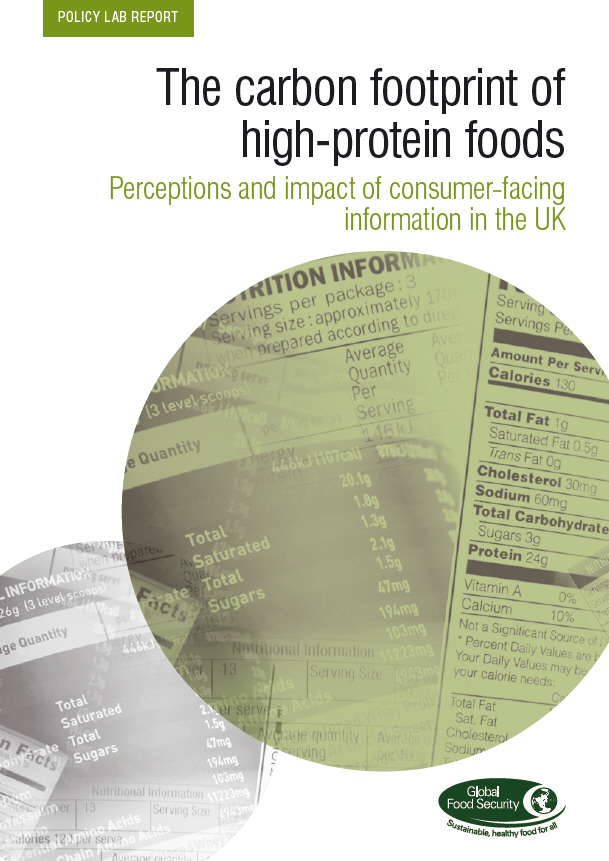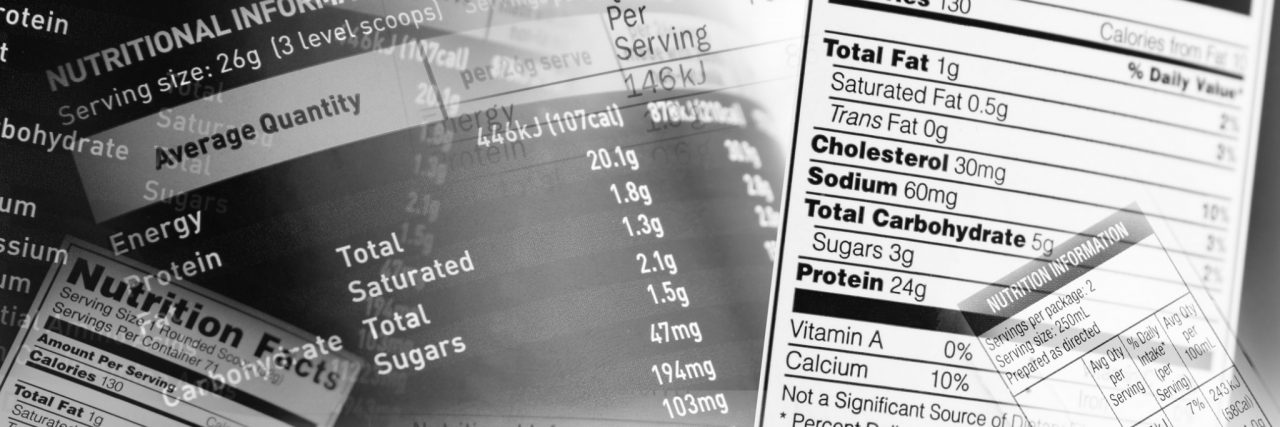A new report explores how UK stakeholders and consumers perceive consumer-facing information that shows the carbon footprint of high-protein food products. The study was funded by the Global Food Security programme as part of the Policy Lab, in which post-doctoral researchers compete to write a report for the programme.
The study consisted of nine semi-structured interviews with participants from four stakeholder groups (supermarket chains, government agencies, certification bodies and consumer groups) and an online survey of 406 consumers.
The indicative survey suggests that provision of carbon footprint information could potentially reduce beef and poultry consumption, with concomitant increases in consumption of pulses and meat alternatives. This indicated shift in consumer behaviour (from foods with a high carbon footprint to those associated with lower emissions) could result in an emissions reduction of ~0.73 kg CO2e per person per month.
However, the study indicates that carbon analysis is challenging, onerous and costly, and public engagement outside of the retail environment is a necessary pre-requisite for carbon labelling to be successful. Stakeholders also questioned whether displaying carbon footprint information could negatively impact on British and Irish beef production.
Authors of the report are Dr Simon Willcock (University of Bangor), Dr Arianna Psichas (University of Cambridge), Dr Michelle Spence (Queen’s University Belfast) and Dr Carmen Alamar (Cranfield University).
Other key findings include:
- Over-prioritisation of carbon footprints detracts from, and may conflict with, other important issues (e.g. biodiversity, animal welfare)
- Carbon footprint information could be displayed on the front of packaging; however there is much competition over space
- Consumers show a high preference for the use of simplified, more reliable metrics, such as car miles and traffic lights.
The full report can be found here:

The carbon footprint of high-protein foods
This report explores how UK stakeholders and consumers perceive consumer-facing information that shows the carbon footprint of high-protein food products. The study was funded by the Global Food Security programme as part of the Policy Lab, in which post-doctoral researchers compete to write a report for the programme.
(You can view PDF documents by downloading a PDF reader. We recommend using Google Chrome or Mozilla Firefox web browsers.)
ENDS


